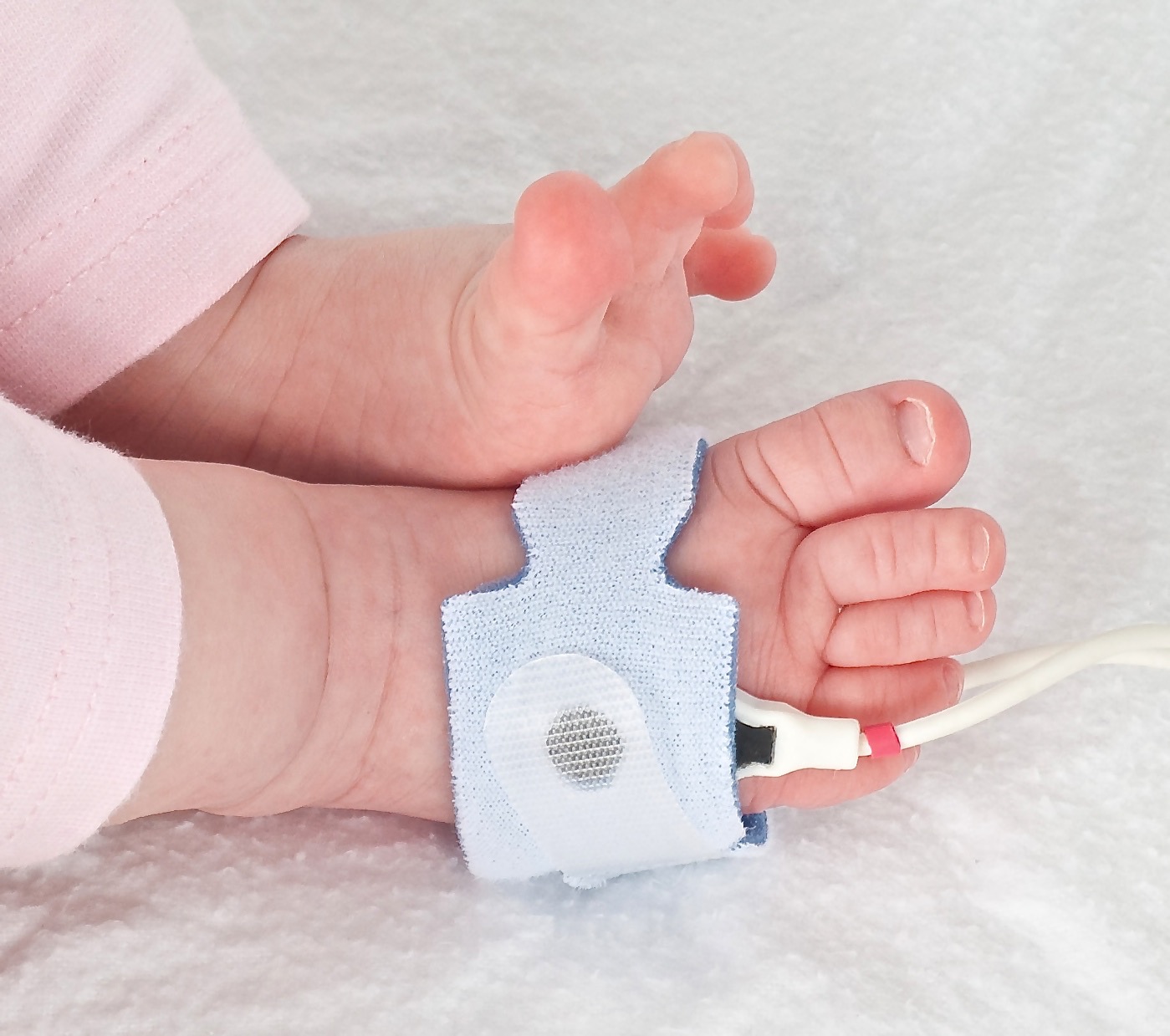Pulse oximetry screening to detect critical congenital heart disease in newborn infants: a study assessing feasibility of a national screening programme
A straight-forward screening tool for babies so critical heart disease isn't missed.
Clinician: Dr Tom Gentles, Paediatric and Congenital Cardiac Services

What: This study will assess the feasibility of implementing a nationwide pulse oximetry screening programme for critical congenital heart disease in our unique maternity setting, and inform a business case for such a screening programme.
Who: This research is an extension of the pilot currently in place to provide pulse oximetry testing for all babies born at Auckland City Hospital, or delivered under midwives and delivery units affiliated with the ADHB. The pilot is also being rolled out through other DHBs with external funding.
How: Pulse oximetry is a simple, non-invasive, test using a small Band-Aid-like wrap that's placed around the baby's foot with a light sensor inside to determine the oxygen level in the blood. It has been shown to be a reliable and effective tool for the early detection of heart defects in newborns. It therefore has the potential to be an excellent tool to screen every baby born in New Zealand.
Why: Every year, almost 100 babies in New Zealand are born with critical heart defects. Detecting them early can save their lives. It is likely that, if established, a national screening programme for critical congenital heart disease based on pulse oximetry will result in earlier diagnosis, with a better chance of survival and less risk of developmental problems for approximately 15 babies a year.


